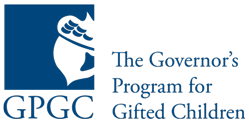Our older students (9th and 10 graders usually) are called “Grads” here at the Program. That’s a long story for another day but these students take college-level classes in the morning. This summer we are offering English (Creative Writing), Psychology in Film, and International Relations. Here are reports from Weeks One and Two for each of those classes.
Creative Writing (Mr. Thomas Parrie, Instructor):
Week One:
This week we began the poetry unit by talking about how to “turn something on its head.” The “theme” for the class is an attempt to “make the familiar new again.” I’ve been giving them poems published by acclaimed poets and we’ve been discussing them with an eye for craft as well as vision. They’ve also been writing poems in class based off of a prompt in which they take an image that is ordinary and they give it meaning that is unique to them. Next week we’ll begin workshopping their original poems.
Week Two:
This week we read and discussed several poems from a diverse group of poets. They turned in two original poems for workshop. They analyzed and critiqued the poems by looking at content and craft with an eye on how to implement the most impressive elements into their own works. We also focused on social justice and what it means today in the world as well as in 21st century America. We also explored poems that are more cerebral and poems that are light hearted, yet are thought provoking or makes commentary on the human experience in the modern world.
International Relations (Mrs. Jessica Markstorm, Instructor):
Week One:
Students were introduced to basic concepts of International Relations such as power, purpose, and institutions. Basic types of actors were discussed and students were able to provide common examples of each type of actor. Students were able to take theories and international law on the recognition of statehood and apply it to modern issues (i.e., Palestine). A brief explanation of world history occurred with a focus on sovereignty, imperialism, WWI, WWII, the Cold War, mutually assured destruction, and decolonialism. At the end of the week students were assigned hypothetical countries in which they decided their government regime type and began interacting with each other to simulate a world environment.
Week Two:
Students were introduced to paradigms and theories this week. The major prevailing paradigms of international relations, realism and liberalism, were explained with in-class activities, historical examples, current event examples, a short movie celebrating the 15th anniversary of the World Trade Organization, a short movie on the United Nations Convention on the Law of the Seas, and scenes from the movie “Mean Girls.” In addition to discussing the major assumptions of each paradigm, hegemonic stability theory, balance of power theory, complex interdependence theory, and liberal institutionalism were all incorporated into the class lectures.
Psychology (Dr. Linda Brannon, Instructor):
Week One:
The topic of this year’s Psychology class is “Psychology Through the Movies,” which will consist of an examination of a selection of topics within psychology illustrated (sometimes inaccurately) in movies. The areas revolve around social psychology, Freudian theory, mental disorders, and treatment of mental disorders.
We discussed images of psychology and how strongly media depictions of psychology influence those images—which focus on psychology as treatment—lead to distorted images of psychology. Students’ most prominent image of psychology resembled Sigmund Freud, whom we discussed briefly; I pointed out that Freud was important to developing the notion of talk-based treatment, but he was a neurologist, not a psychologist.
We explored the professions of clinical psychology and psychiatry, comparing and contrasting the two professions in terms of background and training, theoretical orientations to treatment, and employment. We briefly discussed how one of the traditional differences—prescription privileges—is no longer restricted to MDs in some states. We also discussed the many degrees that confer the title of Dr. on recipients and how MDs are not the only profession that should be addressed with that title.
We extended our discussion of mental health care professions by covering counseling (both school counseling and licensed professional counselors) and social work, detailing the background and training for these professions. I presented the definition of psychology, which says that psychology is the science of behavior and mental processes, not the study of the mind. We discussed some of the challenges and misconceptions of psychology as a science.
We began considering the many areas of psychology that are not related to treatment, most of which fall into the research areas, including social psychology.
Week Two:
We discussed the social psychology point of view (to which the kids showed some initial skepticism). That view holds that people are more affected by their social surroundings than by personality factors. As an example of how powerful surrounding are, I had chosen the Stanford Prison study. We saw scenes from the movie, The Experiment, which is a fictionalized (sensationalized) presentation of this study.
We continued our discussion about the Stanford Prison Study and saw additional scenes from The Experiment. The focus was on the ethics of the experiment, and I asked students to identify differences between the movie and the study. This line of questioning led us to the Department of Health and Human Services guidelines on the Protection of Human Subjects (HHS Title 45, Part 46), which was not in effect at the time of the Stanford Prison Study but which Zimbardo followed in terms of informed consent and right to withdraw. The portrayal the study in The Experiment contained many violations of research ethics, which we discussed.
We discussed Asch’s study on conformity, including a class re-enactment (which we all enjoyed) and a video clip from Candid Camera showing the power of others’ behavior to provoke conformity, even without a word spoken. I asked a question about using this powerful force to encourage good behavior rather than bad, which resulted in an interesting discussion.
Students saw 12 Angry Men and came to class ready to discuss the group processes in the movies, which seemed to include a situation similar to Asch’s conformity study. However, the jury situation includes persuasion, and we discussed some of the factors that contribute to group decision making, such as group polarization (the tendency for groups to adopt more extreme solutions than individuals would). We talked about what would increase this phenomenon and what might decrease it in government and business settings.

